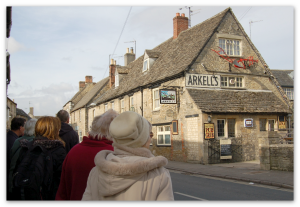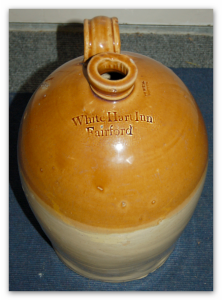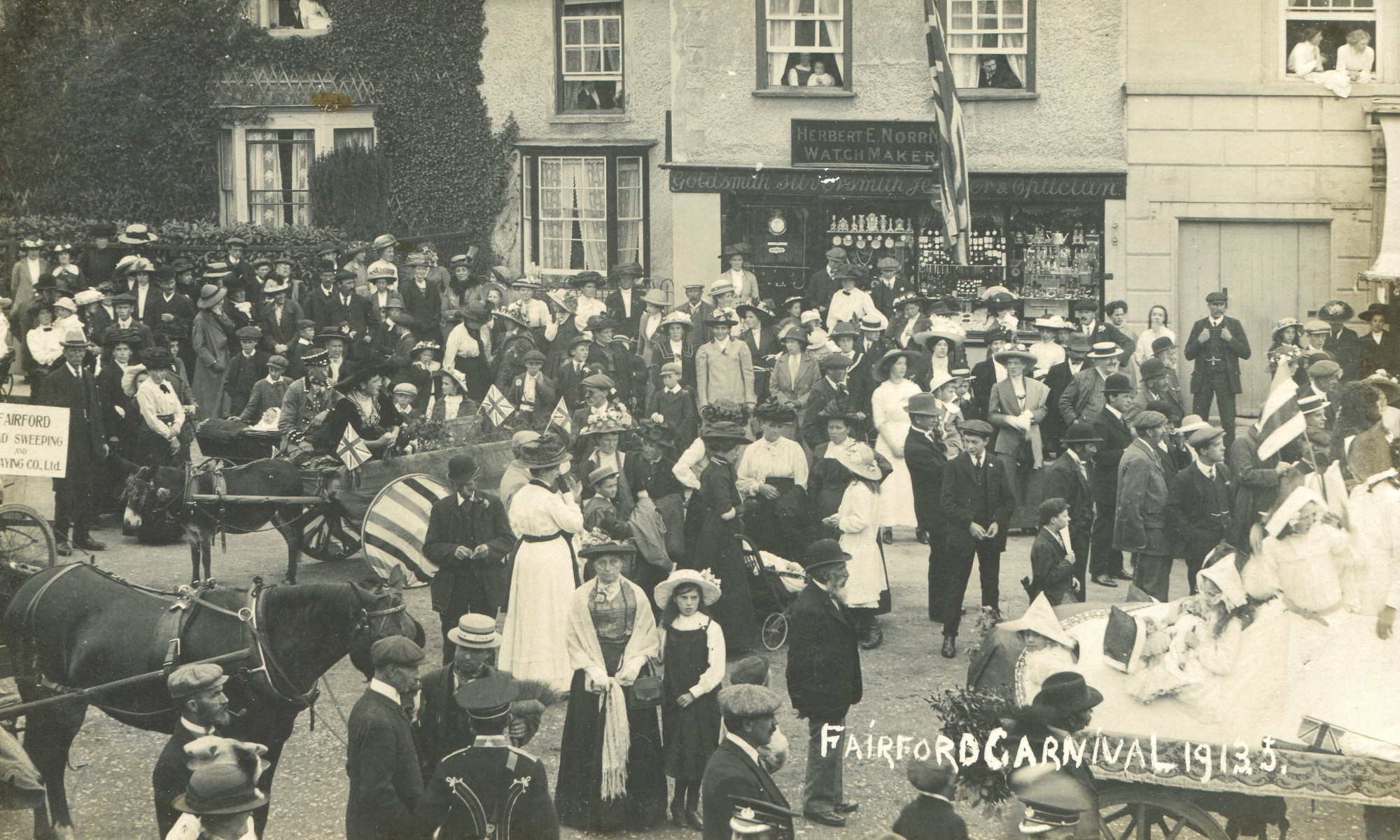
Over 70 FHS members and visitors attended Edwin Cuss’s presentation about Fairford’s pubs and inns on the morning of February 16th. Tim Edgell, who has written books on Gloucestershire pubs and breweries, explained that in about 1830 all people had to do to get a licence to sell beer was to pay two guineas. It was a part of a government scheme to get people drinking beer rather than gin, which was more alcoholic and caused a high level of drunkenness, and this was the reason for the large number of beer retailers that sprang up all over the country in the 19th century.
The first part of the presentation covered hostelries that are no longer in existence: The Swan in the Market Place, the QueenÂ’s Head in Milton Street, The Red Lion (site uncertain), The Carriers’ Arms in Horcott Road, the Fairford Country Club, Whelford Road, and the Troglodyte Club next to the Marlborough Arms. The second half of the talk related to existing establishments some of which were illustrated with pictures of the bars inside as well as exteriors which was very nostalgic for some of our members. Thanks to Edwin Cuss for yet another very interesting and informative presentation.
After the talk some of the audience accompanied Edwin Cuss and Syd Flatman around the town to view some of the pubs mentioned, ending up at The Bull, Fairford’s most famous inn.
To accompany the talk a booklet has been compiled with historical information about former and present pubs and inns in Fairford. It also lists all the beer retailers. Price £1 (p&p 32p) available from enquiry@fairfordhistory.org.uk or 01285 71768.
After the talk some of the audience accompanied Edwin Cuss and Syd Flatman around the town to view some of the pubs mentioned, ending up at The Bull, FairfordÂ’s most famous inn.
To accompany the talk a booklet has been compiled with historical information about former and present pubs and inns in Fairford. It also lists all the beer retailers. Price £1 (p&p 32p) available from enquiry@fairfordhistory.org.uk or 01285 71768.
Recently a stoneware pitcher was donated to FHS with The White Hart, Fairford engraved on it and stamped Powell Pottery. This pottery was based in Bristol and was one of the first firms to use a high gloss glaze. The firm amalgamated with Prices in 1906 so the pitcher probably dates from mid Victorian to before 1906.

